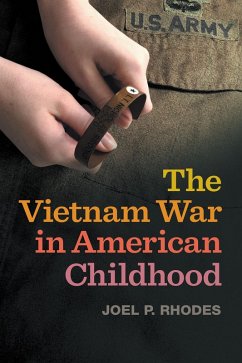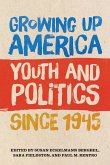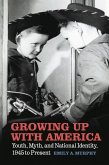For American children raised exclusively in wartime-that is, a Cold War containing monolithic communism turned hot in the jungles of Southeast Asia-and the first to grow up with televised combat, Vietnam was predominately a mediated experience. Walter Cronkite was the voice of the conflict, and grim, nightly statistics the most recognizable feature. But as involvement grew, Vietnam affected numerous changes in child life, comparable to the childhood impact of previous conflicts-chiefly the Civil War and World War II-whose intensity and duration also dominated American culture. In this protracted struggle that took on the look of permanence from a child's perspective, adult lives were increasingly militarized, leaving few preadolescents totally insulated. Over the years 1965 to 1973, the vast majority of American children integrated at least some elements of the war into their own routines. Parents, in turn, shaped their children's perspectives on Vietnam, while the more politicized mothers and fathers exposed them to the bitter polarization the war engendered. The fighting only became truly real insomuch as service in Vietnam called away older community members or was driven home literally when families shared hardships surrounding separation from cousins, brothers, and fathers.
In seeing the Vietnam War through the eyes of preadolescent Americans, Joel P. Rhodes suggests broader developmental implications from being socialized to the political and ethical ambiguity of Vietnam. Youth during World War II retained with clarity into adulthood many of the proscriptive patriotic messages about U.S. rightness, why we fight, heroism, or sacrifice. In contrast, Vietnam tended to breed childhood ambivalence, but not necessarily of the hawk and dove kind. This unique perspective on Vietnam continues to complicate adult notions of militarism and warfare, while generally lowering expectations of American leadership and the presidency.
In seeing the Vietnam War through the eyes of preadolescent Americans, Joel P. Rhodes suggests broader developmental implications from being socialized to the political and ethical ambiguity of Vietnam. Youth during World War II retained with clarity into adulthood many of the proscriptive patriotic messages about U.S. rightness, why we fight, heroism, or sacrifice. In contrast, Vietnam tended to breed childhood ambivalence, but not necessarily of the hawk and dove kind. This unique perspective on Vietnam continues to complicate adult notions of militarism and warfare, while generally lowering expectations of American leadership and the presidency.
Dieser Download kann aus rechtlichen Gründen nur mit Rechnungsadresse in A, D ausgeliefert werden.









